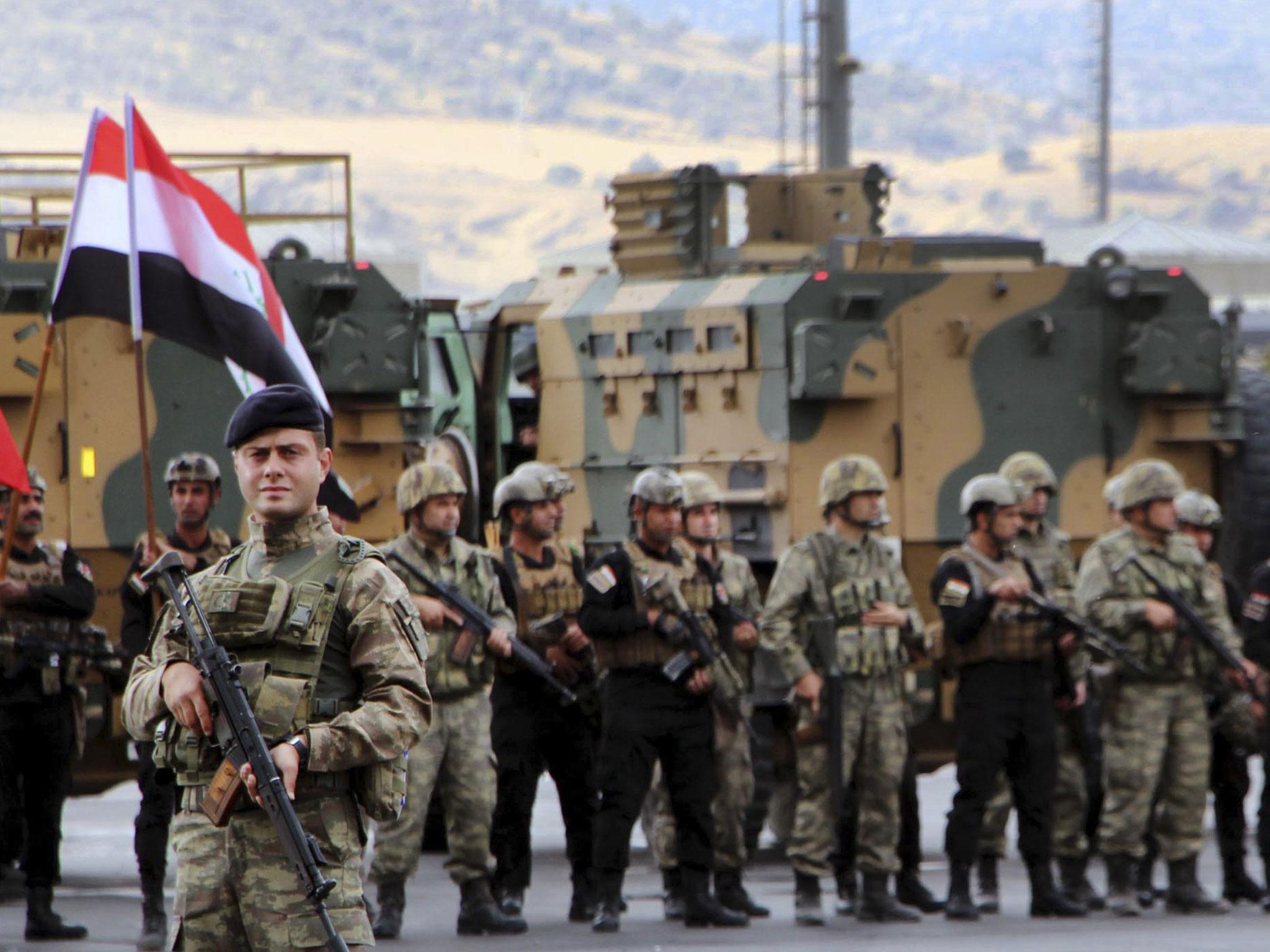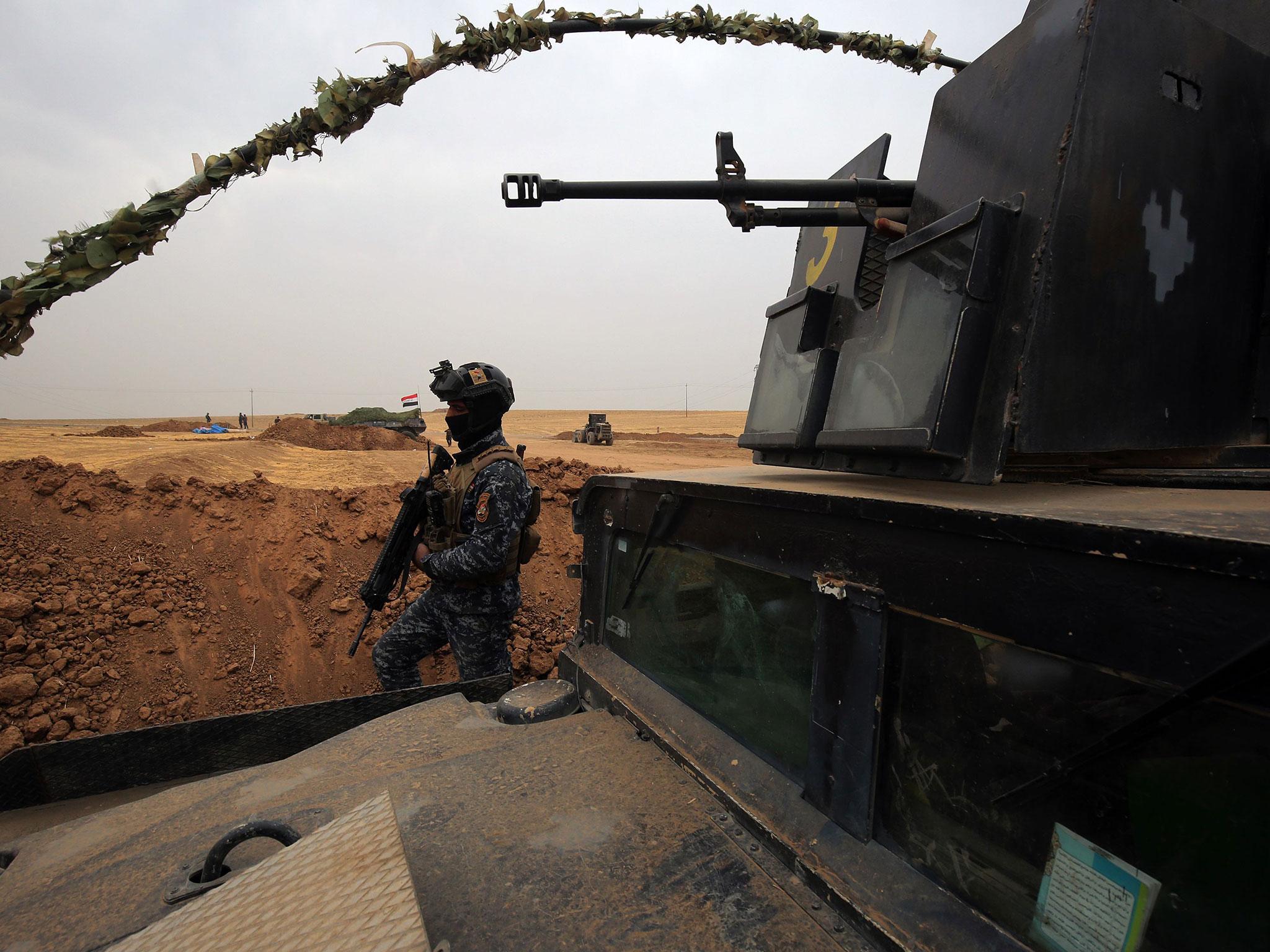How the Kurds lost Iraq: 'They had tanks and planes and we had no chance'
Iraq Reborn: Kurdistan has given up all the territories it won since US invasion in 2003 without a fight. In the second part of his special series, Patrick Cockburn reports from Kirkuk on the gruesome murder of a TV journalist which shows what violence lies just below the surface

The defeat of the Kurds in Kirkuk is devastatingly complete. “We used to be in control here and now we are not,” says Aso Mamand, the Kurdish leader in the city, summing up the situation in a helpless and embittered tone as he describes the fall of Kirkuk and the nearby oilfields to the Iraqi government forces. He would like some new power-sharing arrangements and warns of dire consequences if this does not happen, but he does not sound very hopeful.
Kirkuk used to be described as “the powder keg” of Iraq because of furiously contested rival claims to it by Kurdish nationalists and the Baghdad government. It was potentially even more explosive because its Kurdish, Arab and Turkmen communities make it a deeply divided place. But, despite these rancorous disputes and differences, when the final crisis came on 16 October, the switch from Kurdish to federal government control was surprisingly swift and peaceful.
Mr Mamand says that there was no battle because the Kurds simply did not have the military strength to hold the city and he is dismissive of conspiracy theories about its betrayal. Asked if the advance of the Iraqi forces could have been resisted if the two main Kurdish parties – his own Patriotic Union of Kurdistan and the Kurdistan Democratic Party led by president Masoud Barzani – had been united, he says: “Of course not. The Iraqi forces had tanks and planes and we had no chance. Maybe we would have lasted a day if we had fought, but the only result would have been bloodshed.”
Many Kurds fled at the time and not all have returned, but there is no sign of damage from the fighting and shops and markets are open. A thunderstorm briefly emptied the streets when we were there, but otherwise traffic was heavy and there are few soldiers or checkpoints. “Do you see anything out of the ordinary?” asks the acting governor, Rakan Saeed Ali al-Jubouri, the Arab former deputy governor, whose office looks little changed from when it was occupied by the Kurdish governor Najmaldin Karim who was forced to flee to Irbil. Mr Jubouri says that “the local police are the same and there are just two battalions of the counterterrorism forces in Kirkuk”. Iraqi battalions are small so this probably means only a few hundred soldiers.

Mr Mamand insists that things aren’t quite what they look like. He says that “the government needs to do something to calm down the Kurdish street”. He suggests the appointment of a Kurdish governor or some arrangement to share power. Asked if there had been any significant security incidents, he cited only some shots fired by a former KDP security police officer at an army checkpoint. But, around about the time he was speaking, there was in fact a savage murder in a town called Duquq just south of Kirkuk city, which might give substance to Mr Mamand’s fear that the potential for violence is just below the surface.
The victim was Arkan Sharifi, 50, a Kurdish cameraman working for Kurdistan TV, who was knifed to death by four or five men who broke into his house and locked his wife and children in a separate room. When they got out five hours later, they found him lying in a pool of blood, his body mutilated and with a knife stuck in his mouth, evidence that he been killed because of something he had said or reported. His family says that the killers spoke the Turkmen language, suggesting that what happened may be the outcome of the ongoing feud between the Kurds and the Shia Turkmen that is particularly fierce south of Kirkuk.
I drove through the area where the murder took place earlier in the day and there was no sign of violence there or anywhere else on the closely guarded road from Baghdad. But the murder is a reminder that at all times Iraq is a very violent country. I spoke to a Turkmen member of the Hashd al-Shaabi pro-government paramilitaries called Jawdat Assaf who explained that he came from a village called Tisin Khadim which had been destroyed by Saddam Hussein in 1980. “I survived because I was under 15, but they killed 353 people – everybody over that age including my father and two brothers,” he recalled. “They accused us of supporting the [Shia revolutionary] Dawa Party, though we had hardly heard of it.”
The murder of Arkan Sharifi is striking in its brutality, but no fewer than 465 Iraqi journalists have been killed in the last 14 years. Otherwise the takeover of Kirkuk was unexpectedly pacific. Though the KDP accuses the PUK, always the dominant Kurdish party in the city, of a treacherous Iranian-orchestrated deal with Baghdad, both parties simultaneously withdrew their Peshmerga without fighting. If the Iraqi forces had to fight their way into Kirkuk city they would have inevitably won, but it could have detonated a wider ethnic and sectarian conflict in the disputed territories.
This long-predicted confrontation never took place, but the loss of Kirkuk is more than a crippling blow to Kurdish hopes of independence. With a divided leadership, no allies abroad and without a military option, the Kurds are losing the semi-independent status they had built up since Saddam Hussein was defeated in the Gulf War in 1991 and Iraqi government forces withdrew from the three Kurdish provinces.
This process is now going sharply into reverse. Iraqi government troops on Tuesday set up a checkpoint at the most important border crossing at Ibrahim Khalil between Turkey and Iraqi Kurdistan. Vehicles crossing the border must now be checked three times – by Turks, Iraqi forces and the Kurds. “Habur border gate has been handed over to the central government as of this morning,” said Turkish Prime Minister Binali Yildirim. With Turkey and Iran cooperating with Baghdad, the Iraqi Kurdish authorities are in no position to resist the central government’s takeover of their main powers. Iraqi Prime Minister Haider al-Abadi made clear in an interview with The Independent that he expects the Iraqi state to control the main Peshmerga forces, oil production and exports as well as international flights and the issuing of visas.
Yet the quiet takeover of Kirkuk could be a little deceptive. Weak though the Kurds may now be, political circumstances may not always be so wholly against them or in favour of the Iraqi state. The Kurds looked utterly defeated in 1975 when Saddam Hussein signed the Algiers Agreement with the Shah who abandoned his previous alliance with the Kurds. But the start of the Iran-Iraq war in 1980 forced the withdrawal of much of the Iraqi army from Iraqi Kurdistan, which was then taken over by Kurdish nationalist forces. Defeated again through savage repression, Saddam’s overthrow by the US-led coalition in 1991 enabled the Kurds to start building a statelet, which became a powerful player when the US invaded in 2003.
If the central government in Baghdad exploits its present superiority over the Kurds too greedily, then it could provoke a powerful communal counter-reaction by the Kurdish population. This approach is likely to be opposed by Mr Abadi, but approved by his predecessor as Prime Minister, Nouri al-Maliki, in the run-up to the parliamentary elections next May. In Iraqi politics, almost everybody ends up by overplaying their hand.
Join our commenting forum
Join thought-provoking conversations, follow other Independent readers and see their replies
Comments
Bookmark popover
Removed from bookmarks